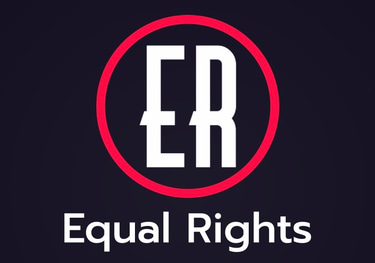Equal Opportunity or Equity:
Which One & Why?
Kylo B
5/3/2024
Equal Opportunity or Equity: Which One & Why?
The debate between equal opportunity and equity represents a fundamental discussion in the realms of social justice, education, and public policy.
While both concepts aim to promote fairness and reduce disparities, they differ in their approaches and underlying philosophies.
This article delves into the nuances of equal opportunity and equity, exploring their definitions, implications, and the reasons why one might be preferred over the other in specific contexts.
Understanding Equal Opportunity
Equal opportunity refers to the principle of providing everyone with the same starting point and access to resources, irrespective of background, identity, or circumstances. The focus is on eliminating barriers and ensuring that individuals have an equal chance to succeed based on their abilities and efforts. Key features of equal opportunity include:
Meritocracy: Emphasis on rewarding individuals based on merit, skills, and qualifications rather than factors such as race, gender, or socioeconomic status.
Legal Protections: Implementation of anti-discrimination laws and policies to prevent unfair treatment and ensure a level playing field in employment, education, and other domains.
Equality of Access: Ensuring that all individuals have access to education, healthcare, and opportunities for advancement without systemic barriers.
Criticisms of Equal Opportunity
While equal opportunity aims to promote fairness, critics argue that it may not address systemic inequalities effectively due to persistent disparities in starting points and resources:
Invisible Barriers: Structural inequalities, historical disadvantages, and implicit biases can create invisible barriers that perpetuate disparities despite equal opportunities on paper.
Limited Scope: Equal opportunity often assumes a neutral starting point, overlooking the cumulative effects of historical injustices and social inequalities.
Individualism: Equal opportunity prioritizes individual outcomes, potentially overlooking collective responsibilities to address systemic barriers and promote social inclusion.
Understanding Equity
Equity, on the other hand, emphasizes fairness by allocating resources and opportunities based on individual needs and circumstances.
The goal of equity is to address historical injustices and systemic disparities by redistributing resources to achieve more equitable outcomes.
Key features of equity include:
Targeted Interventions: Implementing policies and programs that specifically target marginalized or disadvantaged groups to address historical injustices and structural barriers.
Redistribution of Resources: Allocating resources such as funding, support services, and opportunities based on need rather than equality of access.
Addressing Systemic Inequalities: Recognizing and addressing systemic inequalities that perpetuate disparities in health, education, employment, and other domains.
Criticisms of Equity
Critics of equity argue that it may lead to perceived unfairness, dependency, or inefficiency in resource allocation:
Concerns about Fairness: Critics argue that prioritizing equity over equality may lead to perceptions of unfairness or reverse discrimination against certain groups.
Dependency & Entitlement: Some critics contend that equity-based policies can create dependency or discourage individual initiative by guaranteeing outcomes rather than opportunities.
Resource Allocation Challenges: Implementing equitable policies requires complex resource allocation decisions that may be subject to political, economic, or logistical challenges.
Choosing Between Equal Opportunity & Equity
The choice between equal opportunity and equity depends on the specific goals, contexts, and values of a given society or organization:
Contextual Considerations: In some contexts, equal opportunity may be sufficient to promote fairness and social mobility, while in others, equity-based interventions may be necessary to address entrenched inequalities.
Complementary Approaches: Many advocates argue for a combination of both approaches, recognizing that equal opportunity and equity are complementary goals that require tailored interventions based on specific needs and circumstances.
Policy Implications: Decision-makers must consider the potential impact of policies on disadvantaged populations and weigh the trade-offs between equality of opportunity and the redistribution of resources to achieve more equitable outcomes.
The debate between equal opportunity and equity reflects broader discussions about social justice, inclusivity, and the role of government in promoting fairness and reducing disparities.
While both concepts share common goals of promoting fairness, they differ in their approaches and implications.
Ultimately, the choice between equal opportunity and equity depends on the specific context, values, and desired outcomes of policymakers, educators, and advocates striving to create a more just and equitable society.
By understanding the nuances of these concepts and their implications, stakeholders can make informed decisions that address systemic inequalities and promote meaningful opportunities for all individuals to thrive.
